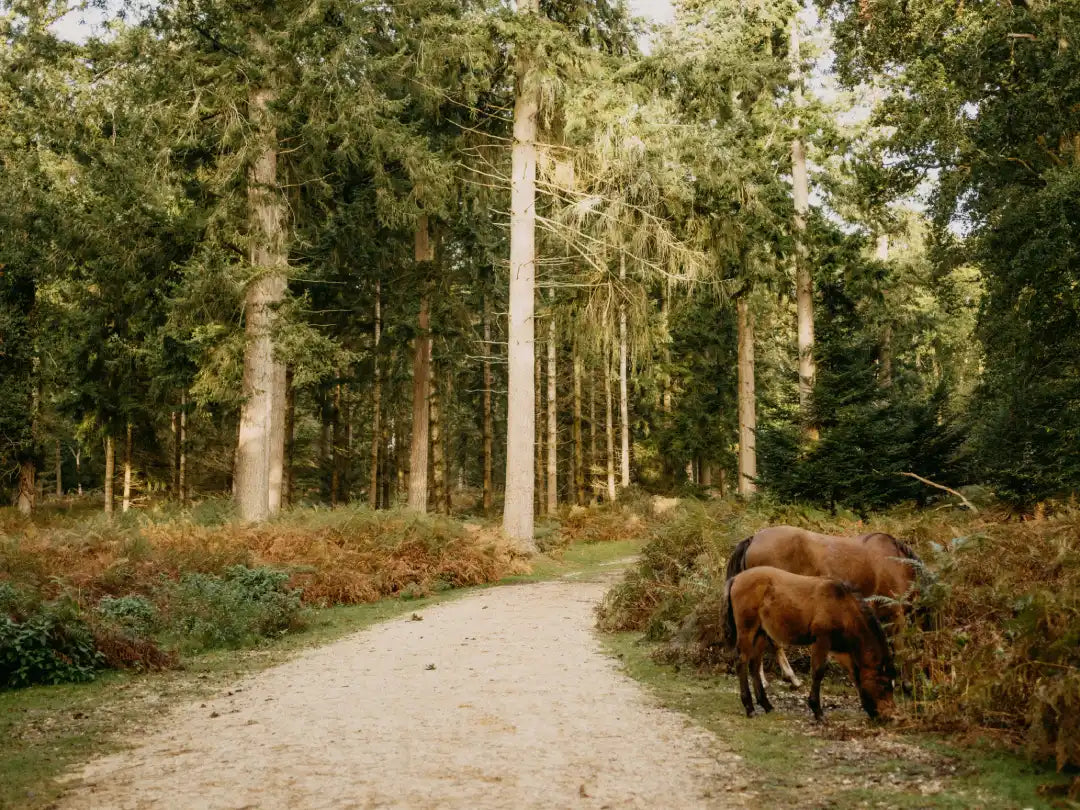Rewilding has emerged as a transformative approach to environmental conservation, aiming to restore and protect natural processes and wilderness areas. This concept, while gaining popularity, presents varying perspectives that intertwine ecological benefits with socio-economic implications. At Bumboo, we advocate for responsible rewilding, recognising its potential to enhance biodiversity, combat climate change, and revitalise ecosystems. However, we also understand the importance of thorough due diligence in selecting organisational partnerships that align with our values of transparency, ethical practices, and charitable goals. This blog delves into the different views on rewilding and outlines why responsible practices are crucial for long-term sustainability.
what is rewilding?
Rewilding aims to return landscapes to their natural state, often by reintroducing species that have been extinct or driven out of areas, removing human-made structures, and allowing ecosystems to restore themselves without human interference. According to the WWF report, "Bridging the Divide: Rewilding, Farming and the Triple Challenge," rewilding is not just about conservation but is also a means to coexist sustainably with nature, supporting both biodiversity and human communities.
perspectives on rewilding
The Ecological Perspective
Ecologically, rewilding is seen as an essential strategy for restoring biodiversity and ecosystem services, such as carbon sequestration, water purification, and soil stabilisation. By reintroducing apex predators and keystone species, rewilding helps in establishing balanced ecosystems, which can adapt to climate changes more robustly.
The Agricultural Perspective
There are concerns among the farming community, as rewilding could compete with agricultural land uses. Farmers fear losing their livelihoods if large tracts of land are converted for rewilding purposes. However, the WWF report suggests that integrating rewilding projects with sustainable farming can provide a buffer against market volatility and enhance the resilience of agricultural systems.
The Social Perspective
Socially, rewilding projects can lead to community divisions if not managed inclusively. It's crucial that these projects involve local communities from the outset, providing them with opportunities for economic benefits and involvement in decision-making processes.
why bumboo supports responsible rewilding
At Bumboo, we believe in responsible rewilding, where ecological, agricultural, and social factors are harmoniously balanced. This approach not only helps in achieving the environmental goals of rewilding but also in supporting local communities, preserving traditional livelihoods, and ensuring economic stability. Here’s why responsible rewilding aligns with our values:
- Biodiversity Enhancement: It supports the restoration of ecosystems, contributing to global biodiversity targets.
- Climate Change Mitigation: By restoring forests, wetlands, and other natural landscapes, rewilding can significantly sequester carbon dioxide, helping mitigate climate change.
- Socio-economic Benefits: Properly planned rewilding projects can boost local economies through eco-tourism and sustainable agriculture, creating new job opportunities.
the importance of investigating partnerships
Before entering into partnerships, it’s crucial for organisations like Bumboo to evaluate potential allies on several fronts:
Trustworthiness of Trustees
Ensuring that the trustees of the organisation have a history of ethical practices and are respected in the community helps in aligning goals and executing projects effectively.
Financial Transparency
Organisations that maintain transparent financial records are preferable as they indicate the responsible management of funds, which is crucial for long-term sustainability.
Alignment of Charitable Goals
Partner organisations should have charitable goals that align with Bumboo’s mission of sustainability and ethical environmental practices. This alignment ensures that both parties are working towards common objectives, maximising the impact of their efforts.
conclusion
Rewilding, when executed responsibly, offers a hopeful path towards restoring our planet’s health and combating ecological crises. However, the success of these initiatives depends heavily on choosing the right partners whose values resonate with ours. At Bumboo, we are committed to investigating the trustees, financials, and charitable goals of any organisation before partnering, ensuring that our efforts in rewilding are both impactful and aligned with our ethical standards. Responsible rewilding is not just about bringing back what was lost, but progressing forward with a balanced, thoughtful approach to conservation.




